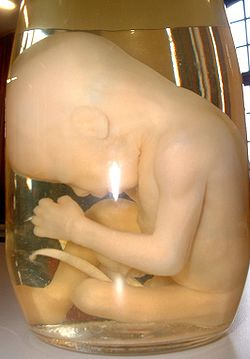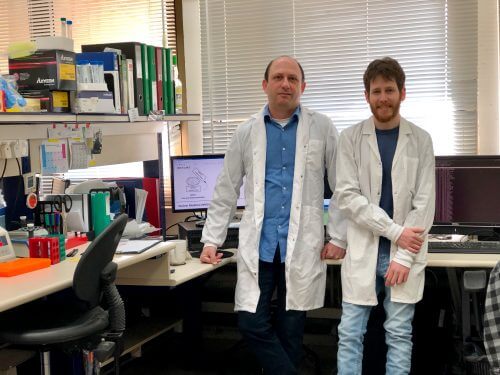The new test, which is non-invasive, is based on an algorithm that enables the reconstruction of the embryo's genome from the mother's blood and the detection of genetic mutations at the level of the individual gene - a resolution tens of times higher than that offered by the existing tests * Prof. Noam Shomron: We believe that the new method will pave the way for the development of a preventive screening test for all If you wish to do so * The article was published tonight in the journal Genome Research


Researchers at Tel Aviv University, led by Prof. Noam Shomron from the School of Medicine, have developed a computational method that provides an accurate answer to one of the most important challenges of medicine today: detecting severe genetic diseases in fetuses in the early stages of pregnancy using a simple blood test that does not endanger the pregnancy.
The groundbreaking method is based on an algorithm that is able to accurately distinguish between the DNA of the mother and that of the fetus in a blood sample taken from the mother, and enables deep genetic reconstruction and sequencing of the fetal genome. The researchers hope that in the future the technology will be used as a preventive screening test for all pregnant women, and will allow termination of pregnancy in cases of fetuses with severe and rare genetic diseases that lead to infant mortality.
The research was carried out by the doctoral student Tom Rabinovitch from Prof. Shumron's laboratory, with the participation of Dr. Reot Mater and Prof. Lina Bassel from the Rabin Medical Center in Petah Tikva and Dr. David Golan from the Technion. The article will be published on 20.2.19 in the journal Genome Research - the world's leading journal in the field of genomics.
"As of today, we know about 7,000 genes in the human genome, point mutations in which cause genetic diseases, some of which have serious consequences for the health of the fetus," says Prof. Shomron. "These diseases are called monogenic diseases, because they are caused by a defect in one specific gene. Familiar examples are Tay-Sachs and CF (cystic fibrosis), but most monogenic diseases are extremely rare. However, these are thousands of mutations, which in total represent a significant risk for the birth of a sick baby. Today's common pregnancy tests, such as amniocentesis and genetic chip, are not able to detect damage to specific genes, but only at the level of entire chromosomes, or sub-regions of chromosomes that include millions of building blocks (nucleotides) of the fetal DNA. Another difficulty is that these are invasive tests, which may endanger the fetus, and therefore many women are not interested in being tested - especially when it comes to an expensive pregnancy achieved through fertility treatments."
Researcher Tom Rabinovitch adds: "In recent years, a new non-invasive technology has come into use, called (NIPD Non-Invasive Parental Diagnosis) that allows the diagnosis of genetic syndromes in the fetus through a blood test from the mother as early as the 12-10th week of pregnancy. But even this method is only able to detect defects at the chromosome level. We sought to develop a method that would allow diagnosis of mutations at the level of the individual gene. The new method enables a resolution tens of times higher than that offered by the existing tests."
The match was complete
The goal of the researchers was to develop an algorithm that is capable of reconstructing with the highest level of accuracy the fetal genome from a mixture of maternal and fetal DNA found in a blood sample taken from the mother. "In the plasma of the mother's blood there are pieces of free DNA, and some of them - about 10%, belong to the fetus," explains Prof. Shomron. "We realized that if we sequence the DNA in the blood and know how to distinguish between that of the mother and that of the fetus, we can get a complete picture of the structure of the fetal genome, and look for point mutations in specific genes. To this end, we developed a probabilistic computational method, which distinguishes between contiguous pieces of DNA originating from the mother and those originating from the fetus, according to specific physical properties - for example, the size of the piece of DNA."
Throughout the development stages, the algorithm was tested with the help of samples taken from 7 families with a history of a severe genetic disease, who underwent in vitro fertilization treatments in order to identify embryos
healthy before returning them to the womb. 3 families were treated at the Rabin Medical Center, and the data of the other 4 families were taken from international databases. For each family, 4 DNA samples were tested: a sample taken from the father's oral cavity, white globules from the mother's blood containing only her DNA, plasma from the mother's blood containing a mixture of DNA from the mother and the fetus, and blood from the baby after birth. The researchers sequenced all the DNA samples, and used those of the mother and father to identify the fetal genome by deep sequencing the mixed DNA from the plasma. The results were compared to an amniotic fluid test - an invasive test that is performed in the 11th week when there is concern that the fetus is damaged. Later, after birth, the fetal genome reconstructed using the new method was compared to the baby's genome. The match was complete.
"In light of the impressive results, we are now seeking to advance our technology to the commercial stage, which will allow trials on a much larger number of pregnant women, and later the development of a preventive screening test for all mothers who are interested in it," Prof. Shumron concludes. "We believe that in the future every pregnant woman will be able to undergo an accessible and easy test based on the innovative method, already at a very early stage in pregnancy. This could make it easier for parents and doctors to decide on an early termination of pregnancy, in many cases where the fetus is damaged. This will save a lot of suffering from the babies and their families."

4 תגובות
Yael, you can contact the professor and find out if it is possible to join the experiment. I am a citizen who read the article.
Hey…
When will the test be available???
This smart research, and even more so when the technology is advanced to the commercial stage, is of enormous importance.
I did not find in the article a reference to the question of the exact timing of taking the mixture of maternal and fetal DNA found in a blood sample taken from the mother, but if it is possible to take the sample until the 40th day of the fetus, and still get reliable computational results - the implications for this are extreme.
In the fifth week of pregnancy, nerve cells develop in the brain of the human fetus that secrete nerve conductors (neurotransmitters), and when these substances reach appropriate nerve cells, they create electrical activity in them. From this moment on, the brain continues to develop and produces more and more electrical activity.
In Jewish law (and following it - in Muslim law) it is accepted that a fetus is considered a human being from its 40th day. Halachic rulings, like accepted moral methods of thought that deal with the question of abortion, also refer to the fact that the first electrical activity in the brain occurs on the 40th day of the fetus. According to the same scale, the moment of death is determined to be the moment when there is no electrical activity in the brain. The fact that the fetus is 40 days old is what distinguishes, according to these, between what is nothing but biological tissue and a living human being, albeit at a very basic level. Hence the permission to abort a fetus or not.
It turns out that the attitude described is the property of many, religious and non-religious. Hence, the existence of a test that would allow early enough diagnosis of genetic defects, would allow the free abortion of many defective fetuses, since it would solve the religious and moral dilemmas of many who oppose or encourage abortions. It will also solve the consequences associated with the birth of defective fetuses and their upbringing - the concern and the personal, social and economic burdens both at the level of the individual and at the level of society and the state.
I am in week 20 +5 and would love to know if the test can be done already and what is the cost and is there a refund or is it too new and just started? Really don't want to do amniotic fluid. I got pregnant two weeks after I celebrated my 35th birthday, so it's a legacy to do, but how is it an explicit recommendation since all my tests have come out normal so far